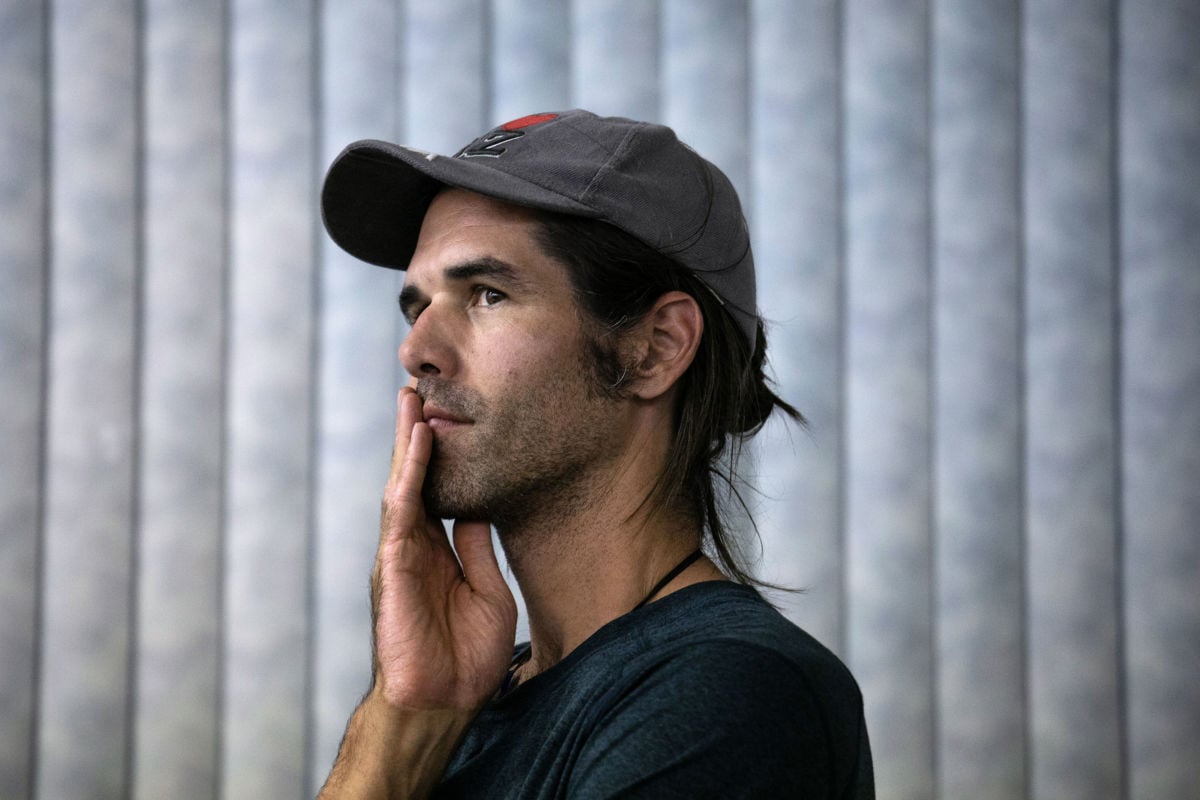Earlier this year in June, Dr. Scott Warren walked away from the Tucson federal courthouse a free man. The DOJ had charged him with harboring, arguing that he deserved up to twenty years in prison for providing humanitarian aid to two near-death migrants in the Arizona desert. At trial, Warren testified that his sincerely-held religious beliefs compelled him to provide these individuals with food, water, and shelter. These acts — acts which Warren described as “sacred” — embody perhaps the most essential Christian commandment: to provide alms to the needy. The only problem is, the beneficiaries of Warren’s piety weren’t just needy, they happened to be migrants. And that’s precisely why the Trump administration will re-try him on November 12th.
Warren volunteered to step in where the federal government would not: to protect migrants from the punishing conditions in the Sonoran desert, conditions which cost upwards of five hundred migrant lives each year. He is a part of No More Deaths, an Arizona-based humanitarian group that emerged in 2004 as a coalition of community and faith groups; it’s also a ministry of the Unitarian Universalist Church of Tucson. No More Deaths builds on a long tradition of border resistance which coalesced in the 1980’s as the Sanctuary Movement. As here, the largely ministry-led movement provided humanitarian assistance to the thousands of individuals fleeing violence-ravaged Central American countries.
During the 1980s, as in present day, not only did the U.S. fail to provide humanitarian assistance at the border, it sought to destabilize, disrupt, and prosecute those who did. Under Reagan, the U.S. launched “Operation Sojourner,” a covert attempt to destroy the largely religious-led movement. By 1983, FBI and INS informants had infiltrated an entire network of humanitarian workers by clandestinely invading and surveilling churches and Bible study sessions. Not exactly separation of Church and State. The U.S. eventually indicted several Sanctuary Movement members, including half the members of the Arizona Lutheran Bible study group, two priests, a reverend, and a nun. Over thirty years later, the government tried Scott Warren for precisely the same thing.
Recently, the landing page for the State Department website displayed Secretary of State Mike Pompeo’s October 11, 2019 Being a Christian Leader speech. Interposed on the page was the following quote: “[a]s believers, we draw on the wisdom of God to help us get it right, to be a force for good in the life of human beings.” One has to wonder whether this administration has simply elected to forget its infamous family separation policy. Still, as Trump’s newly-appointed faith adviser, Paula White, divined recently: “to say no to President Trump” — or his acolytes — “would be saying no to God.”
What really makes Warren’s case so interesting is that the prosecution comes amidst an overtly Christian-Fundamentalist agenda. Since taking office President Trump has surrounded himself with the evangelical bloc. Leonard Leo, Trump’s judicial whisperer, has rapidly remade the federal bench, appointing evangelically-vetted judges at an unprecedented clip. In 2017, then-Attorney General Jeff Sessions launched the DOJ’s “Religious Liberty Task Force.” That same year, on the National Day of Prayer, Trump issued an Executive Order “Promoting Free Speech and Religious Liberty,” the first sentence of which sets a clear agenda: to “enforce Federal law’s robust protections for religious freedom.”
Fittingly, Warren invoked these same robust protections at trial, moving to dismiss the charges under the Religious Freedom Restoration Act, or RFRA, a bipartisan law passed in 1993 to allow for certain religious legal exemptions. When asked why he risked violating the law by providing water, food, and clothing to migrants in the desert, Warren testified: “[b]ased on my spiritual beliefs, I am compelled to act. I’m drawn to act. I have to act when someone is in need.” If Warren’s testimony sounds familiar, it’s because it is — it’s from the Book of Matthew: “[f]or I was hungry and you gave me something to eat, I was thirsty and you gave me something to drink, I was a stranger and you invited me in.” He argued that under RFRA the law inadvertently constrained his religious beliefs — a seemingly airtight defense. Not so: the judge tossed the argument completely.
In June, the jury ended up voting eight-to-four in Warren’s favor, falling far short of the requirement for a unanimous conviction. Whether the votes were cast on purely legal grounds or because of some larger appeal to sanctity and justice we don’t know. What we do know is that on November 12, 2019, the avowed-Christian Trump administration will ask an Arizona jury once more to convict Warren and his closely-held religious beliefs, renewing its attempt to squash the Sanctuary Movement and its ministry of supporters once and for all.
Join us in defending the truth before it’s too late
The future of independent journalism is uncertain, and the consequences of losing it are too grave to ignore. To ensure Truthout remains safe, strong, and free, we need to raise $50,000 in the next 9 days. Every dollar raised goes directly toward the costs of producing news you can trust.
Please give what you can — because by supporting us with a tax-deductible donation, you’re not just preserving a source of news, you’re helping to safeguard what’s left of our democracy.
